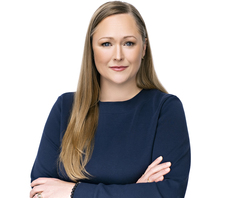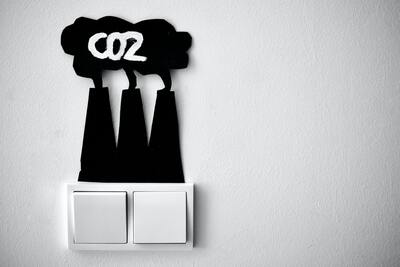Stacy Kauk: ‘Working in climate is tough’


Shopify’s head of sustainability sheds light on the operational challenges of net zero and the importance of cross-sector collaboration
Stacy Kauk is head of sustainability at Canadian e-commerce giant Shopify, where she is tasked with ensuring that the millions of business users and nearly 600 million customers that engage with the platform do so in the most sustainable way possible. She also fronts Shopify’s Sustainability Fund, which has committed more than $32m to date to emerging clean technologies, and last year gave a TED Talk titled ‘The billion-dollar pollution solution humanity needs right now’.
What does a typical day working in sustainability look like for you?
There is no typical day in my role. One day, I’m meeting with multiple companies in Shopify’s Sustainability Fund to check in on their progress. Another day, I’m collaborating with members of Frontier – an advance market commitment to accelerate carbon removal innovation. And, other days, I’m working with our product teams to help our millions of merchants implement climate-conscious practices. What I enjoy most about this position is that I get to flex my skills across a wide range of disciplines, all with the goal of combating climate change.
Which industries do you feel are blazing a trail for others to follow in terms of sustainability right now?
The tech industry has been leading the way, but Shopify has been loud and clear since launching our Sustainability Fund that tech can’t scale carbon removal alone. Climate change can only be solved if we come together, and that’s what we’re aiming for with our advance market commitment, Frontier – launched by Shopify, alongside Stripe, Alphabet, Meta and McKinsey Sustainability. We committed to spend a combined total of $925M to scale carbon removal.

Where do you see the next wave of green ideas and leaders coming from?
There are a raft of new carbon removal businesses – direct-air capture, bio-oil injection, ocean alkalinity enhancement, for example – that are poised to be successful. But, we need the right frameworks in place to regulate the price of carbon to allow them to be viable. I would like to see the next wave of leaders step up from governments across the globe who recognise the crucial role that digital technologies and products can play in accelerating climate action and environmental protection. Additionally, I always like to encourage folks who may be contributing to our issues to join us – for example, engineers and scientists that work at oil and gas companies would likely prove to be huge assets at companies developing innovative solutions to remove carbon from the atmosphere.
What book or film would you recommend to anyone looking to get a stronger grasp of green issues?
‘Ministry for the Future’ by Kim Stanley Robinson is a bit of a tough read, but it gives a great overview of the possible solution set to cut emissions and pull carbon dioxide out of the atmosphere. It’s technically accurate so you can get up to speed, but also set in a future where the world delays climate action and misses our reduction targets. I came away with both hope and despair. We have a monumental task ahead and we can’t afford any distractions or infighting; we need every emissions reduction tool and carbon removal technology available to us.
What area sustainability do you think isn’t getting the attention it deserves?
People are often surprised at how onerous net zero commitments are for organisations. Having a net zero commitment can help prioritise and foster alignment, but execution can be a burden. The opportunity costs are huge because while companies strain to tick their net zero checkboxes, there are a lot of other worthwhile projects they simply don’t have bandwidth for.

Which setback or failure has taught you the most about sustainability?
I’ve had more than a few delays and setbacks during my career. What I’ve come away with is the need to work on what is important to me and what resonates with my values. Working in climate is tough and many days it feels like we’re going backwards, so I need to be persistent and relentless. This mindset is only possible when I’m working on impactful projects.
What’s the biggest misconception about what you do?
Carbon removal is not carbon offset. When Shopify talks about being a carbon neutral organisation or about empowering merchants with tools to run sustainable businesses, we aren’t simply buying offsets to achieve those goals. We are funding climate entrepreneurs building the technologies that the world desperately needs to scale, and scale fast.
What’s the best piece of advice you’ve been given during your time in sustainability?
If everyone is doing the same thing, take a look in the opposite direction. Examine what’s being sacrificed to accomplish their objectives – uncover what’s being overlooked. Often this presents enormous opportunities for impact, especially when we need innovation and a complete solution set to address climate change.
What do you know about sustainability now that you wish someone had told you when you were starting out?
No matter what action you take someone will always tell you it’s not enough, or that you should do something else instead. There’s no silver bullet to solving this mess and don’t let the perfect be the enemy of the good. Do what you are uniquely capable of contributing and support the actions of others who are doing different things.
- Do you want to join BusinessGreen ‘In the Green Room…’ or nominate a colleague to feature in our new series of Q&As? Email Stuart.Stone@IncisiveMedia.com for more details.








